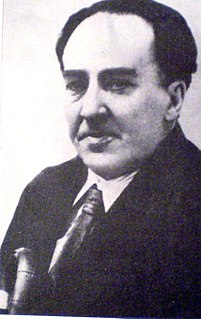A Quote by Thomas Carlyle
Also, what mountains of dead ashes, wreck and burnt bones, does assiduous pedantry dig up from the past time and name it History.
Related Quotes
We measure our presence in generations; we cannot dig down ten thousand years and find our bones. Our arrival is scribed upon the line of history; it does not drift upon the winds of story, or float upon the shrouds of myth. We are still explorers and discoverers, seeking meaning through movement and examination. But we are coming to a time of listening. Our sweat and breath are now upon this land. Voices rise up, and we begin to hear the echoes in the stones.
History is the art of making an argument about the past by telling a story accountable to evidence. In the writing of history, a story without an argument fades into antiquarianism; an argument without a story risks pedantry. Writing history requires empathy, inquiry, and debate. It requires forswearing condescension, cant, and nostalgia. The past isn’t quaint. Much of it, in fact, is bleak.
The one term I don't like to be called is a 'vulture.' Because to me, a vulture is a kind of asset-stripper that eats dead flesh off the bones of a dead creature. Our bird should be the phoenix, the bird that reinvents itself, recreates itself from its ashes. And that's much closer to what it is that we really do.
Time is a lot of the things people say that God is. There's always preexisting, and having no end. There's the notion of being all powerful-because nothing can stand against time, can it? Not mountains, not armies. And time is, of course, all-healing. Give anything enough time, and everything is taken care of: all pain encompassed, all hardship erased, all loss subsumed. Ashes to ashes, dust to dust. Remember, man, that thou art dust; and unto dust thou shalt return. And if time is anything akin to God, I suppose that memory must be the devil.
I want a room decorated with bones!" Dan said. "Where'd they come from?" "Cemeteries," Amy said. "Back in the 1700s, the cemeteries were getting overcrowded, so they decided to dig up tons of old bodies–all their bones–and move them into the Catacombs. The thing is...look at the dates. See when they started moving bones into the Catacombs?" Dan squinted at the screen. He didn't see what she was talking about. "Is it my birthday?
The historian is looked upon as objective when he measures the past by the popular opinions of his own time, as subjective when he does not take these opinions for models. That man is thought best fitted to depict a period of the past, who is not in the least affected by that period. But only he who has a share in building up the future can grasp what the past has been, and only when transformed into a work of art can history arouse or even sustain instincts.









































